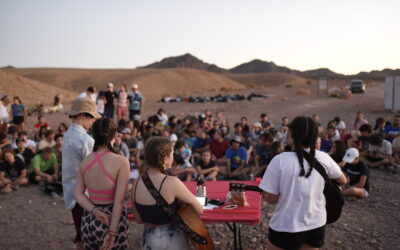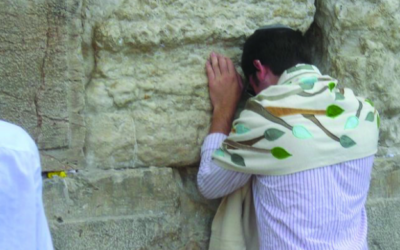By Rabbi Rich Kirschen, Director of NFTY in Israel
This past Sunday marked the last day of Sukkot. There are few holidays in Israel that are as powerful as Sukkot, a holiday that makes you feel as though you are living in the Torah. In Israel, Sukkot is not just a two day festival, but it is a seven day holiday known as “Z’man Simchatenu/A Time of Our Happiness”, a festival where businesses shut down and everyone in the country takes vacation. You see sukkahs (booths) suddenly appearing all over the country, and not only in people’s homes, but in falafel shops and schwarma stands, too. Basically, wherever Israelis can carry out the mitzvah of building a sukkah, they will try to do so. In Jerusalem, the government has trucks that drop off giant piles of palm branches (for free) around the city in order to help people build their sukkahs. The supermarkets are filled with dates, figs and the seven different types of species (crops) that we are supposed to use on Sukkot. Right before the holiday begins, the streets are filled with little stands selling lulovs and etrogs. In Israel, Sukkot is not just in synagogues and private homes, but it is also in public schools, supermarkets, shopping malls, national parks. It is talked about on the radio and it is even on TV. Sukkot is a perfect example of why having a Jewish state isn’t only about Jewish physical survival, but rather illustrates the power of living in a place where the dominant culture is Jewish, and where a holiday like Sukkot is simply a natural part of our rhythm of life here. There isn’t one child in Israel who doesn’t know about Sukkot, because they have been learning about it since kindergarten, making decorations for the Sukkah and getting ready for a week of vacation from school.
For adults living in Israel, the metaphorical power of the sukkah is definitely not lost. Although this is a holiday of “our rejoicing”, the story of Sukkot also has another more unsettling message. In addition to being commanded to be happy, we are also commanded to live in these sukkahs for seven days, while taking out our finest china, our nicest cutlery and our most precious linens. The message built into this holiday is clear, that in spite of the sukkah’s lack of sturdiness (read uncertainty) our sukkah will somehow hold up. In many ways Sukkot is a holiday that reflects the reality of Israel and Israelis each and every day. For it is a holiday that juxtaposes the commandment to be happy along with the acknowledgment of our precarious reality and existential angst. Can you get more Jewish than that? And on that note – Chag Sameach! 😊






